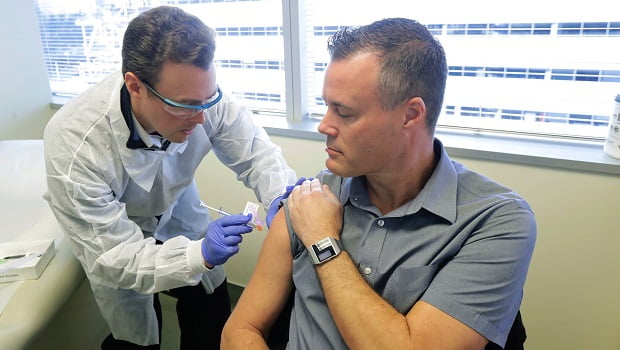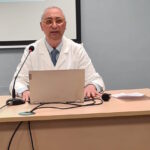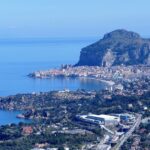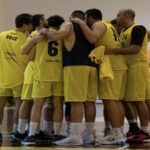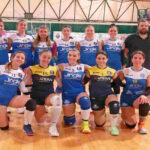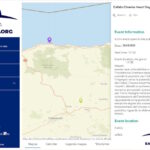- NIH-funded trial of Moderna mRNA vaccine is first of any for COVID-19
- Sotto il testo tradotto. On March 16, 2020, Kaiser Permanente Washington Health Research Institute (KPWHRI) gave the first-ever injection of an investigational vaccine for the 2019 novel coronavirus, SARS-CoV-2, to 4 volunteers participating in a phase I federally sponsored clinical trial.
- To date, no other trial has been launched in people of any vaccine for this virus, which causes COVID-19. The KPWHRI trial in Seattle began recruiting participants on March 3.
- “We are proud that the National Institute of Allergy and Infectious Diseases (NIAID) selected us to conduct this innovative trial,” said Lisa Jackson, MD, MPH, senior investigator at KPWHRI. “We’re well prepared and focused on helping to address this evolving health situation.” Dr. Jackson is the lead researcher for the study, funded by the U.S. National Institutes of Health.
- “Finding a safe and effective vaccine to prevent infection with SARS-CoV-2 is an urgent public health priority,” said NIAID Director Anthony S. Fauci, M.D. in a NIAID news release. “This Phase 1 study, launched in record speed, is an important first step toward achieving that goal.”
- The investigational vaccine is called mRNA-1273 and made by Moderna. The vaccine is made using a new process that is much faster than older methods of making vaccines. It does not contain any part of the actual coronavirus and cannot cause infection. Instead, it includes a short segment of messenger RNA that is made in a lab.
- The trial is still enrolling
Study participants must be healthy Seattle-area adults age 18 to 55 years. To be eligible, they can’t have certain health conditions that affect the immune system, and they can’t be taking medications that affect the immune system. - The initial trial is a small “phase I” test involving 45 participants—part of a 3-phase process examining the potential vaccine. In this first phase, KPWHRI researchers are testing the safety of various doses and whether these doses produce an immune response. Phase I trials don’t study the effectiveness of the vaccine in preventing coronavirus infection. That work comes at a later phase of the vaccine research.
- KPWHRI’s path to this important role
KPWHRI’s vaccine research team began preparations for the possibility of a trial as soon as they got the call on January 28. The team has expertise in conducting these kinds of trials, including testing other investigational vaccines against “swine” and “bird” flu. KPWHRI became a VTEU site in 2007, and it is the only one of the nation’s 9 VTEU centers not housed at a university medical center. Since 1962, the VTEUs have played a key role in developing new and improved vaccines and therapies against infectious diseases. - Currently there is no vaccine proven to protect against SARS-CoV-2 infection. A vaccine is urgently needed for several important reasons:
- The large number of people infected
The ability of the virus to spread from person to person
The spread of the virus across so many geographic areasWhat should people do if they are interested in participating?
People who are age 18-55, live or work in the Seattle area, and think they might want to be part of this study, are invited to visit corona.kpwashingtonresearch.org. - News_-_Man_getting_2nd_shot-2_columns.jpg
Neal Browning becomes the second volunteer to receive the investigational COVID-19 vaccine in the NIH-supported clinical trial in Seattle. Credit: Ted S. Warren / AP Photos - Lo studio finanziato dall’NIH con il vaccino mRNA Moderna è il primo di tutti per COVID-19
Il 16 marzo 2020, Kaiser Permanente Washington Health Research Institute (KPWHRI) ha dato la prima volta l’iniezione di un vaccino sperimentale per il 2019 nuovo coronavirus, SARS-CoV-2, a 4 volontari che partecipano ad una fase I sponsorizzato dal governo federale di sperimentazione clinica . - Fino ad oggi, nessun altro studio è stato avviato su persone con qualsiasi vaccino per questo virus, che causa COVID-19. Il processo KPWHRI a Seattle ha iniziato a reclutare partecipanti il 3 marzo.
- “Siamo orgogliosi che l’Istituto nazionale di allergie e malattie infettive (NIAID) ci abbia selezionato per condurre questo processo innovativo”, ha affermato Lisa Jackson, MD, MPH, ricercatrice senior presso KPWHRI. “Siamo ben preparati e concentrati sull’aiutare ad affrontare questa situazione sanitaria in evoluzione.” Il Dr. Jackson è il principale ricercatore dello studio, finanziato dal National Institutes of Health degli Stati Uniti.
- “Trovare un vaccino sicuro ed efficace per prevenire l’infezione da SARS-CoV-2 è una priorità urgente per la salute pubblica”, ha dichiarato il direttore della NIAID Anthony S. Fauci, MD in un comunicato stampa della NIAID . “Questo studio di Fase 1, lanciato a velocità record, è un primo passo importante verso il raggiungimento di tale obiettivo.”
- Il vaccino sperimentale si chiama mRNA-1273 e prodotto da Moderna . Il vaccino viene prodotto utilizzando un nuovo processo che è molto più veloce rispetto ai metodi precedenti di produzione dei vaccini. Non contiene alcuna parte del coronavirus reale e non può causare infezione. Invece, include un breve segmento di RNA messaggero che viene prodotto in un laboratorio.
- Il processo è ancora in fase di iscrizione
I partecipanti allo studio devono essere adulti sani nell’area di Seattle dai 18 ai 55 anni. Per essere ammissibili, non possono avere determinate condizioni di salute che influenzano il sistema immunitario e non possono assumere farmaci che influenzano il sistema immunitario. - Lo studio iniziale è un piccolo test di “fase I” che coinvolge 45 partecipanti, parte di un processo in 3 fasi che esamina il potenziale vaccino. In questa prima fase, i ricercatori di KPWHRI stanno testando la sicurezza di varie dosi e se queste dosi producono una risposta immunitaria. Gli studi di fase I non studiano l’efficacia del vaccino nella prevenzione dell’infezione da coronavirus. Quel lavoro arriva in una fase successiva della ricerca sui vaccini.
- Il percorso di KPWHRI verso questo importante ruolo
Il team di ricerca sui vaccini di KPWHRI ha iniziato i preparativi per la possibilità di una sperimentazione non appena hanno ricevuto la chiamata il 28 gennaio. Il team ha esperienza nella conduzione di questo tipo di prove, incluso il test di altri vaccini sperimentali contro l’influenza “suina” e “aviaria”. KPWHRI è diventato un sito VTEU nel 2007 ed è l’unico dei 9 centri VTEU della nazione non ospitati in un centro medico universitario. Dal 1962, i VTEU hanno svolto un ruolo chiave nello sviluppo di vaccini e terapie nuove e migliorate contro le malattie infettive. - Attualmente non è stato dimostrato che un vaccino protegga dall’infezione SARS-CoV-2. Un vaccino è urgentemente necessario per diversi motivi importanti:
- Il gran numero di persone infette
La capacità del virus di diffondersi da persona a persona
La diffusione del virus in così tante aree geografiche
Cosa dovrebbero fare le persone se sono interessate a partecipare?
Le persone di età compresa tra 18 e 55 anni, vivono o lavorano nell’area di Seattle e pensano di voler far parte di questo studio, sono invitati a visitare corona.kpwashingtonresearch.org . - Neal Browning (foto) diventa il secondo volontario a ricevere il vaccino sperimentale COVID-19 nella sperimentazione clinica supportata da NIH a Seattle. Credito: Ted S. Warren / AP foto


